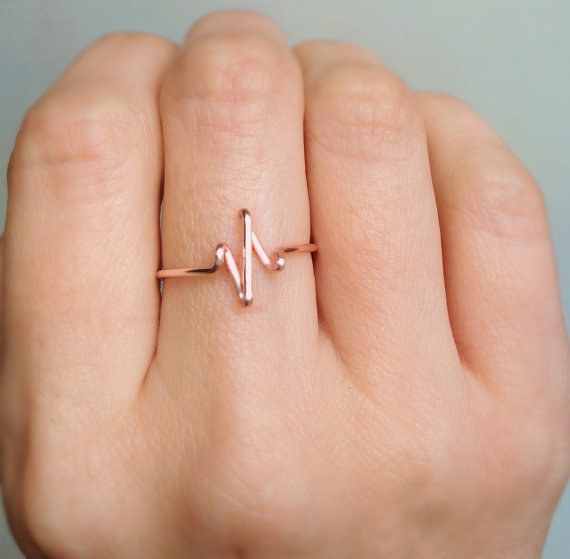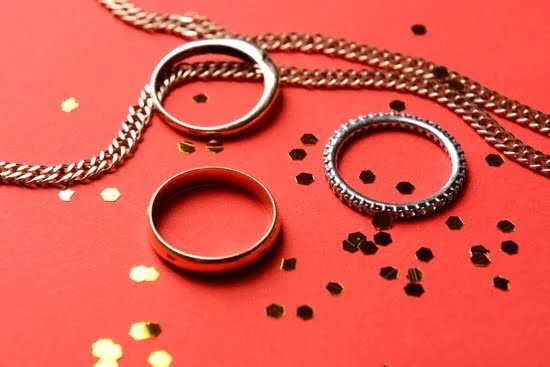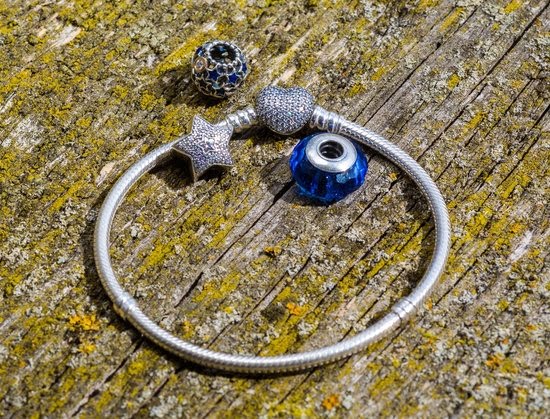In today’s world, many jewelry enthusiasts are seeking unique and unconventional materials to adorn themselves with. From recycled metals to ethically sourced gemstones, the jewelry industry has seen a surge in interest for alternative options. One material that has recently caught the attention of designers and consumers alike is industrial grade diamonds.
These diamonds, which are traditionally used for industrial purposes, have shown potential as an intriguing and affordable choice for jewelry. In this article, we will explore the feasibility of using industrial grade diamonds in jewelry, diving into their characteristics, pros and cons, quality assessment, innovative designs, maintenance and care, customer testimonials, and ultimately embracing their versatility in modern jewelry.
Before we delve into the specifics of industrial grade diamonds in jewelry, it is essential to understand what sets them apart from their gem-quality counterparts. While gem-quality diamonds are prized for their clarity and brilliance, industrial grade diamonds possess different qualities that make them suitable for practical applications such as cutting or grinding tools.
These diamonds can vary in color and clarity and may contain imperfections or irregular shapes that may not meet the standards typically associated with gem-quality stones.
Despite these differences, there is growing interest in incorporating industrial grade diamonds into jewelry due to several advantages they offer. Firstly, these diamonds exhibit exceptional durability that can withstand everyday wear and tear.
Secondly, compared to gem-quality diamonds which often command high prices due to their rarity and desirability among collectors and investors, industrial grade diamonds generally come at a more affordable price point. However, it is crucial to consider the potential limitations associated with using these diamonds in terms of aesthetics and value.
Understanding Industrial Grade Diamonds
Industrial grade diamonds, also known as natural industrial diamonds or boart, are a unique category of diamonds that differ from gem-quality diamonds in several ways. These diamonds are primarily used for industrial applications due to their physical properties and characteristics. Understanding what sets industrial grade diamonds apart can help individuals determine their feasibility for use in jewelry.
Characteristics and Properties
Industrial grade diamonds possess distinct characteristics that differentiate them from gem-quality diamonds. While gem-quality diamonds are valued for their clarity, color, and cut, industrial grade diamonds are primarily evaluated based on their hardness, thermal conductivity, and abrasion resistance. These properties make industrial grade diamonds ideal for various industrial applications such as cutting, grinding, and drilling.
Differences from Gem-Quality Diamonds
One of the key differences between industrial grade diamonds and gem-quality diamonds is their appearance. Industrial grade diamonds often contain inclusions and blemishes that affect their visual clarity.
In contrast, gem-quality diamonds have higher clarity grades due to the absence of significant inclusions or blemishes visible to the naked eye. Additionally, the color of industrial grade diamonds may vary from white to shades of yellow or brown compared to the colorless or near-colorless nature of gem-quality diamonds.
Industrial Applications
Industrial grade diamonds find extensive use in a wide range of industries. They are commonly used in manufacturing tools for cutting hard materials like stone, glass, and metals due to their exceptional hardness. The exceptional thermal conductivity of these diamonds also makes them valuable components in heat sinks used in electronic devices and laser systems. Additionally, they play a crucial role in oil drilling operations where diamond-tipped drill bits are used to penetrate rock formations efficiently.
Understanding these distinctions between industrial grade and gem-quality diamonds is essential when considering their use in jewelry. While gem-quality diamonds are valued for their beauty and rarity, industrial grade diamond jewelry offers an unconventional appeal with a touch of industrial chic.
Cons Pros of Using Industrial Grade Diamonds in Jewelry
When it comes to jewelry, people are often drawn to unique and unconventional materials that set them apart from the crowd. One such material that has sparked interest in recent years is industrial grade diamonds. These diamonds, which are primarily used for industrial purposes, have started to make their way into the world of jewelry. In this section, we will explore the pros and cons of using industrial grade diamonds in jewelry to help you weigh your options.
One of the main advantages of using industrial grade diamonds in jewelry is their exceptional durability. These diamonds are known for their strength and hardness, making them resistant to scratches and chips.
Unlike other gemstones that may require frequent repairs or replacements, industrial grade diamond jewelry can withstand the test of time and everyday wear without losing its beauty. Additionally, these diamonds are often more affordable compared to gem-quality diamonds, allowing individuals with smaller budgets to enjoy the luxury of diamond jewelry.
However, there are potential limitations when it comes to using industrial grade diamonds in jewelry. One drawback is their aesthetic appeal. Industrial grade diamonds are not typically cut and polished with the same precision as gem-quality diamonds, resulting in a less radiant sparkle and brilliance.
This may not be desirable for those seeking a traditional diamond look. Another consideration is the value associated with these diamonds. Since they are primarily used for industrial purposes, their value on the market may not be as high as gem-quality diamonds.
Ethical considerations also come into play when sourcing industrial grade diamonds for jewelry. While gem-quality diamonds often go through rigorous ethical mining processes, the same cannot always be said for industrial grade diamonds. It is important to ensure that proper sourcing practices are followed to avoid supporting any unethical practices within the diamond industry.
Quality Assessment
In order to determine the suitability of industrial grade diamonds for use in jewelry, it is important to consider several key factors. These factors include the quality of the diamonds, diamond grading standards and certifications, and how customers can make informed decisions when purchasing jewelry with industrial grade diamonds.
Evaluating the Quality of Industrial Grade Diamonds
When assessing industrial grade diamonds for jewelry purposes, there are certain factors to consider. One important factor is understanding the specific qualities and characteristics that set these diamonds apart. Industrial grade diamonds tend to have lower clarity and color grades compared to gem-quality diamonds. However, they are known for their exceptional hardness and durability.
Another aspect to evaluate is the cut of the diamond. While gem-quality diamonds are typically cut for optimal light reflection and brilliance, industrial grade diamonds may be cut differently due to their intended use in industrial applications. It is essential to assess how a particular cut will impact the overall appearance and aesthetic appeal of the diamond when incorporated into jewelry.
The Importance of Diamond Grading Standards and Certifications
Diamond grading standards play a crucial role in determining the quality and value of a diamond. When it comes to industrial grade diamonds, there may not be widely recognized grading systems specifically tailored for them. However, some jewelers may still provide certification or documentation that outlines the characteristics and properties of the industrial grade diamond being used in jewelry.
To ensure transparency and accuracy, it is important for customers to seek out reputable jewelers who can provide reliable information about the industrial grade diamond’s quality based on established grading standards. This will give customers confidence in their purchase and help them understand what they can expect from their industrial grade diamond jewelry.
Making Informed Decisions as a Customer
As a customer interested in purchasing jewelry with industrial grade diamonds, it is essential to educate yourself about these unique diamonds. Researching reputable jewelers who specialize in using industrial grade diamonds in their designs can provide valuable insights and guidance.
Additionally, it is important to communicate with the jeweler about your specific preferences and requirements for the jewelry. They can help you navigate through the options and make personalized recommendations based on your budget, design preferences, and desired quality.
By considering the factors mentioned above, customers can make well-informed decisions when purchasing jewelry with industrial grade diamonds. With knowledge of diamond grading standards, an understanding of the qualities unique to industrial grade diamonds, and clear communication with jewelers, customers can confidently embrace the beauty and versatility that these diamonds bring to modern jewelry designs.
Innovative Jewelry Designs
In recent years, there has been a growing interest in unique and unconventional materials for jewelry. From recycled materials to unconventional gemstones, individuals are seeking out pieces that tell a story and make a statement. One material that has gained attention in the world of jewelry is industrial grade diamonds. These diamonds, which differ from gem-quality diamonds commonly found in traditional jewelry, offer a distinct beauty and versatility that are now being showcased in innovative jewelry designs.
Exploring the Unique Properties of Industrial Grade Diamonds
Industrial grade diamonds are known for their durability and strength, making them an ideal choice for jewelry that is meant to withstand daily wear and tear. Their unique composition allows them to resist scratches and abrasions, ensuring that they maintain their quality even after years of use. Additionally, their affordability compared to gem-quality diamonds makes them an attractive option for individuals seeking high-quality jewelry at a more accessible price point.
One of the key characteristics that set industrial grade diamonds apart from their gem-quality counterparts is their appearance. While gem-quality diamonds are prized for their brilliant colorless or near-colorless nature, industrial grade diamonds can exhibit a wide range of colors and hues. From deep yellows to rich browns and vibrant blues, these colored industrial grade diamonds offer a striking visual appeal that adds an edgy twist to traditional jewelry styles.
Showcasing the Creativity of Jewelry Designers with Industrial Grade Diamonds
Jewelry designers have recognized the unique beauty and versatile nature of industrial grade diamonds, incorporating these stones into innovative designs that break away from conventional norms. From avant-garde statement pieces to delicate everyday wear items, these designers are showcasing the full potential of industrial grade diamonds in modern jewelry.
Designers often use the distinctive colors of industrial grade diamonds to create mesmerizing patterns and visual effects on their pieces. By mixing different hues together or intentionally selecting contrasting colors, they can create stunning pieces that capture attention and invoke a sense of individuality. Industrial grade diamonds also lend themselves well to unconventional cut shapes, allowing designers to experiment with asymmetrical or geometric designs that break away from traditional diamond cuts.
Maintenance and Care
When it comes to preserving the beauty and longevity of any type of jewelry, including those with industrial grade diamonds, proper maintenance and care are essential. While industrial grade diamonds are known for their durability, it is still important to take precautions to ensure they continue to shine and sparkle for years to come.
Cleaning and maintaining jewelry with industrial grade diamonds is relatively simple. Regularly cleaning your diamond jewelry can help prevent dirt and grime from dulling its brilliance. To clean your jewelry at home, you can use a gentle solution of warm water and mild dish soap.
Soak the piece in the solution for a few minutes and then gently scrub it with a soft toothbrush or a lint-free cloth. Rinse the jewelry thoroughly under running water and pat dry with a soft cloth.
In terms of storing industrial grade diamond jewelry, it is best to keep them separate from other pieces to avoid scratching or chipping. One option is to store each piece in its own individual compartment or pouch. Another popular option is using a jewelry box with fabric-lined compartments or using velvet or silk pouches specifically designed for storing diamond jewelry.
Industrial grade diamonds are known for their durability, but just like any other type of diamond, they are not completely indestructible. It is important to handle them carefully to avoid any accidental damage. Avoid wearing diamond jewelry during activities that may subject them to high impact or excessive wear, such as sports or heavy chores. Additionally, it is advisable to remove your diamond jewelry before applying lotions, creams, or perfumes as these substances can leave residue on the stones.
By following these maintenance and care guidelines, you can ensure that your industrial grade diamond jewelry stays beautiful and retains its value over time.
| Maintenance Tips | Care Instructions |
|---|---|
| Clean jewelry regularly with a gentle solution of warm water and mild dish soap | Store in individual compartments or pouches to prevent scratching |
| Avoid wearing during high-impact activities or heavy chores | Remove before applying lotions, creams, or perfumes |
Customer Testimonials
When it comes to making a decision about buying jewelry, hearing from other customers and their experiences can play a crucial role. Customer testimonials provide valuable insights into the appeal, durability, and overall satisfaction of owning jewelry with industrial grade diamonds.
Many individuals who have chosen to own industrial grade diamond jewelry have shared their positive experiences. One common theme among these testimonials is the unique and distinctive beauty that industrial grade diamonds bring to their jewelry pieces. These diamonds often have an unconventional appearance, featuring visible inclusions or varying colors. Customers appreciate the edgy twist that industrial grade diamonds bring to traditional jewelry styles, allowing them to stand out from the crowd.
In addition to their aesthetic appeal, customers have also praised the durability of industrial grade diamond jewelry. These diamonds are known for their incredible toughness and resistance against everyday wear and tear. Unlike gem-quality diamonds that may require extra caution and care, owners of industrial grade diamond jewelry can confidently wear their pieces without worrying about damage or scratches.
Furthermore, many individuals find value in the affordability of industrial grade diamond jewelry. While gem-quality diamonds can come with a hefty price tag, industrial grade diamonds offer a more accessible option for those looking to own diamond jewelry without breaking the bank. Customers appreciate the ability to enjoy the beauty and prestige associated with diamonds at a more affordable price point.
Overall, customer testimonials attest to the versatility and charm of owning jewelry with industrial grade diamonds. The unique features, durability, and affordability make these diamonds an attractive option for those seeking unconventional yet stunning pieces. Whether it’s a bold statement necklace or an elegant ring, industrial grade diamond jewelry has proven to be a source of delight and satisfaction for many customers.
| Customer Testimonial | Experience |
|---|---|
| “I love my industrial grade diamond earrings. The visible inclusions give them character and make them truly one-of-a-kind. I always receive compliments whenever I wear them.” | Appreciation for the unique beauty of industrial grade diamonds |
| “I was hesitant at first about buying industrial grade diamond jewelry, but I am so glad I did. The durability is unmatched. I wear my industrial grade diamond ring every day, and it still looks as good as new.” | Positive experience with the durability of industrial grade diamond jewelry |
| “Industrial grade diamond necklaces allow me to enjoy the prestige of diamonds without breaking my budget. The affordability is a game-changer for someone like me who loves diamond jewelry but can’t afford high-end pieces.” | Value appreciation in terms of affordability |
Conclusion
In conclusion, the use of industrial grade diamonds in jewelry offers a unique and unconventional approach to accessorizing. Throughout this article, we have explored the characteristics and properties of industrial grade diamonds, as well as the advantages and limitations of incorporating them into jewelry designs. It is clear that these diamonds bring a sense of versatility and distinctive beauty to modern jewelry.
Industrial grade diamonds are known for their durability and affordability, making them an attractive option for those seeking sustainable and budget-friendly jewelry. While they may not possess the same level of aesthetic appeal or value as gem-quality diamonds, their unique properties can still be harnessed by innovative jewelry designers to create stunning pieces that stand out from traditional diamond jewelry.
When evaluating the quality of industrial grade diamonds for jewelry purposes, it is crucial to consider factors such as diamond grading standards and certifications. This ensures that customers can make informed decisions when purchasing jewelry with industrial grade diamonds and have confidence in the authenticity and quality of their purchase.
Incorporating industrial grade diamonds into modern jewelry designs not only brings an edgy twist to traditional styles but also embraces a growing interest in unconventional materials. By considering these versatile diamonds for their next accessory purchase, readers can truly embrace a new form of self-expression through their own unique style.
So why not step outside the norm and explore the possibilities that industrial grade diamonds have to offer? Whether it’s a sleek pendant necklace or a statement ring, these diamonds have the potential to add a touch of individuality and sophistication to any outfit.
Frequently Asked Questions
What are industrial grade diamonds used for?
Industrial grade diamonds are primarily used for their extreme hardness and durability in various industrial applications. One main utilization is as cutting and grinding tools in industries such as mining, construction, and manufacturing.
These diamonds are often embedded onto the surface of saw blades, drill bits, or grinding wheels to enhance their efficiency and longevity when working with hard materials like stone, concrete, or metal. Additionally, industrial grade diamonds are employed in high-pressure experiments, where they act as anvil cells to generate intense pressure for scientific research or material synthesis.
Are laboratory diamonds worth anything?
Yes, laboratory diamonds do hold value. Although they are man-made rather than naturally occurring, laboratory diamonds possess the same chemical composition and physical properties as natural diamonds. Therefore, they have intrinsic value based on their quality factors such as cut, clarity, carat weight, and color.
The primary difference lies in their origin and production process – laboratory diamonds are manufactured in a controlled environment using advanced technology instead of being formed deep within Earth’s crust over millions of years. However, this does not diminish their worth; laboratory diamonds are desirable due to ethical considerations as they do not involve mining and contribute to sustainable practices within the diamond industry.
Why are industrial diamonds cheaper?
Industrial diamonds are cheaper compared to gem-quality natural or laboratory-grown diamonds due to several reasons. Firstly, the demand for industrial grade diamonds is higher than that of gemstones since they have extensive use in various industrial sectors. As a result of larger quantities being produced and demanded globally for industrial purposes rather than purely for adornment purposes like jewelry, economies of scale come into play and production costs per carat decrease significantly for industrial diamonds.
Furthermore, gemstones undergo additional processes such as shaping and polishing to meet aesthetic standards suitable for jewelry settings. In contrast, industrial-grade diamonds usually do not require extensive finishing since durability takes precedence over aesthetics in their intended applications. Consequently, the simplified production process leads to cost savings reflected in lower prices for industrial-grade diamonds compared to their gemstone counterparts.

Welcome to my jewelry blog! My name is Sarah and I am the owner of this blog.
I love making jewelry and sharing my creations with others.
So whether you’re someone who loves wearing jewelry yourself or simply enjoys learning about it, be sure to check out my blog for insightful posts on everything related to this exciting topic!





